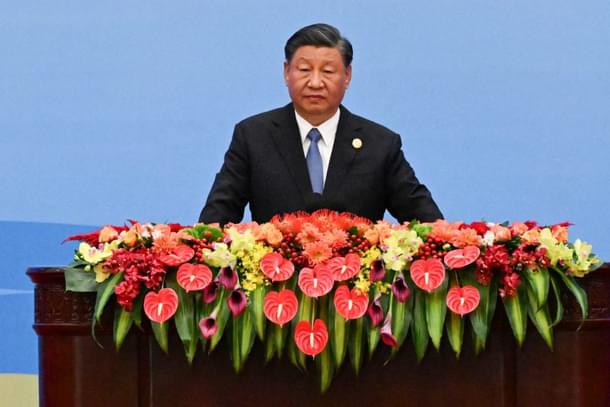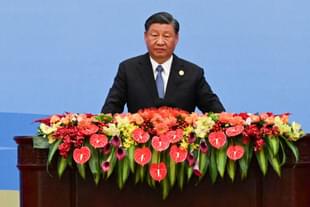World
European Firms Put Brakes On China's Belt And Road Initiative Due To Geopolitical Tensions
V Bhagya Subhashini
May 09, 2024, 03:50 PM | Updated 03:50 PM IST
Save & read from anywhere!
Bookmark stories for easy access on any device or the Swarajya app.


Multinational companies from Europe face greater challenges in participating in China's Belt and Road Initiative (BRI) projects compared to a decade ago.
Geopolitical tensions and evolving market dynamics post-Covid have made investment less attractive and created barriers to collaboration with Chinese partners.
German multinationals, for instance, have provided components and expertise to Chinese BRI projects in Africa. Christoph Kannengiesser, CEO of the German-African Business Association, emphasised the desire of German companies to work closely with Chinese counterparts, although finding suitable partners has proven challenging due to differing approaches and standards for projects.
While China has scaled back its push for large-scale infrastructure projects with BRI partners, earlier initiatives raised concerns over environmental protection, job creation, and local debt burdens. German participants, for instance, prioritise environmental protection and require proof of a nation’s capacity to repay loans, which may not align with China's preferences.
Despite past collaborations, China's ambitions to undertake projects independently have posed challenges for European involvement. This shift is evident in reduced partnerships with developed nations and a focus on domestic economic recovery by Chinese state-owned companies.
Moreover, political considerations have impacted European countries' enthusiasm for BRI participation. Concerns about potential isolation and uncertainty surrounding the political climate have made governments and companies more hesitant to engage in China-led projects.
While some European countries refrain from formal participation in the Belt and Road Initiative, individual companies still contribute technical expertise to Chinese projects. However, many prefer to keep these collaborations discreet to avoid potential backlash.
Swiss company Nexxiot is operating a factory in Suzhou, China, to manufacture devices for digitising railway cars and shipping containers, as per South China Morning Post's report.
Predatory nature of BRI loans and debt-trap diplomacy
The BRI has encountered significant other challenges. There are concerns about its lack of transparency in loan disbursement and the predatory nature of the loans, which can lead to debt-trap diplomacy.
One notable instance occurred in 2017 when Sri Lanka struggled to meet its debt obligations for the Hambantota port project. In response, the Chinese authorities restructured the loan, ultimately securing a 99-year lease on the Hambantota port.
This problem extends beyond Sri Lanka; several BRI projects have failed to deliver the expected returns, leaving governments in substantial debt. Examples of such situations can be found not only in Sri Lanka but also in countries like Kenya, Pakistan, Tanzania, Argentina and Malaysia.
Furthermore, the BRI is perceived as a political tool used by China to provide advantages to Chinese companies while burdening participating nations with overwhelming financial obligations.
The project's sustainability and long-term implications have raised concerns.
The Belt And Road Initiative (BRI) Project
The BRI project launched in 2013 plans to connect east and west overland across the Eurasian landmass and envisions three routes — from China to Europe via Central Asia, from China to the Persian Gulf and the Mediterranean via West Asia, and from China to South East Asia and South Asia.

The road, which plans to connect China with Asia, Africa and Europe through maritime routes by sea, also envisages three components: from China to South East Asia, on to South Asia, and through East Africa to the Mediterranean.
This ambitious infrastructure development project has seen China lending over $1 trillion to more than 100 countries, dwarfing Western investments in the developing world.
V Bhagya Subhashini is a staff writer at Swarajya. She tracks infrastructure developments.





